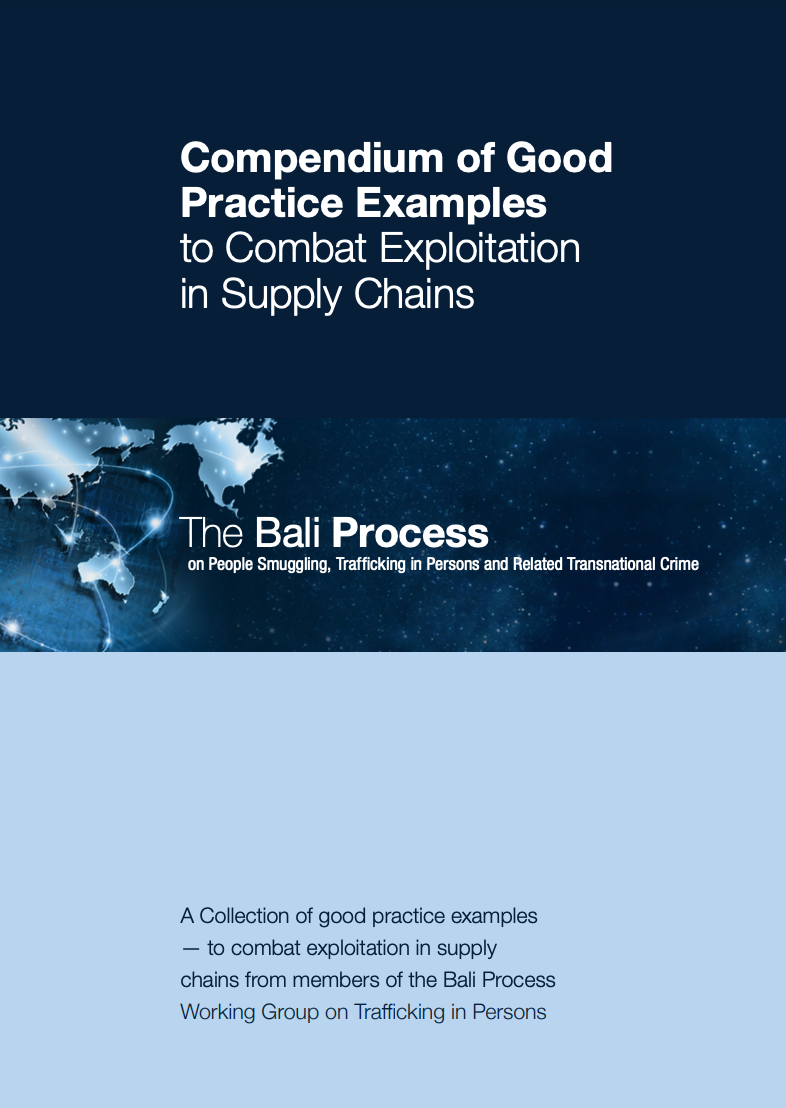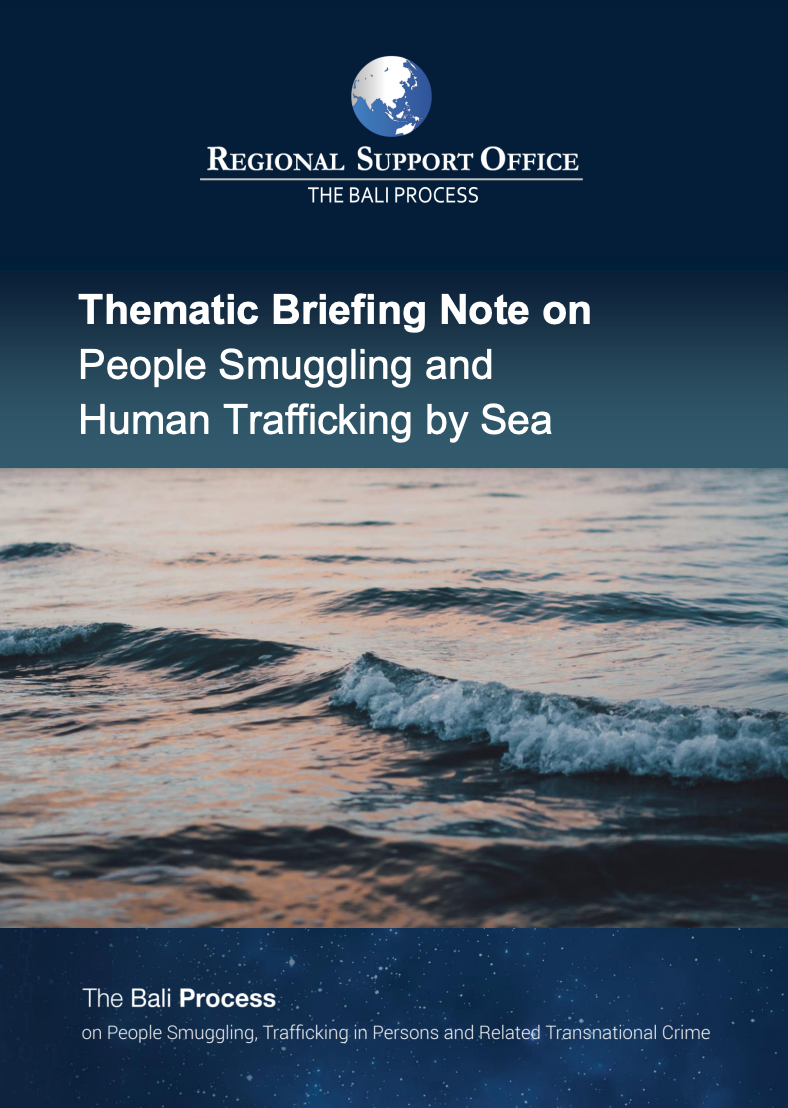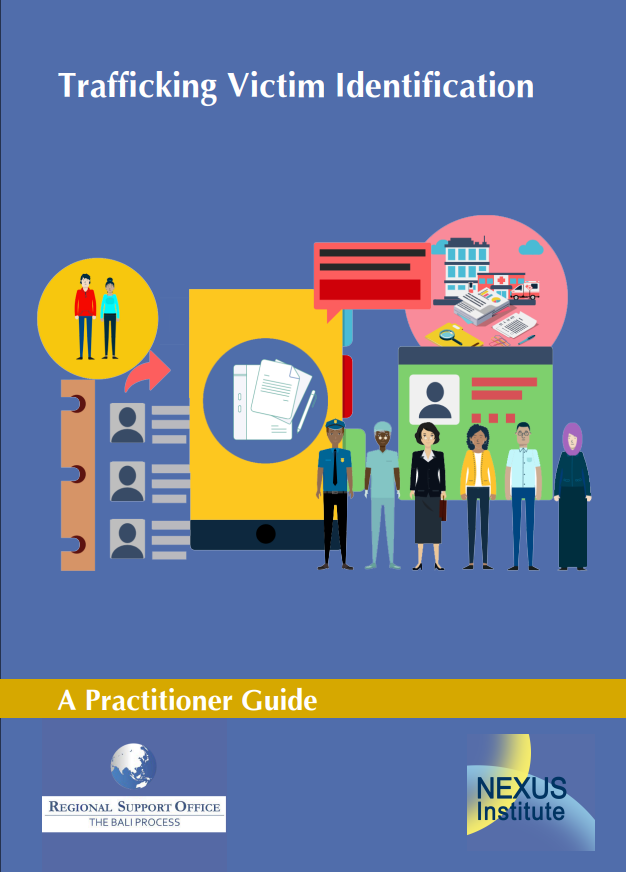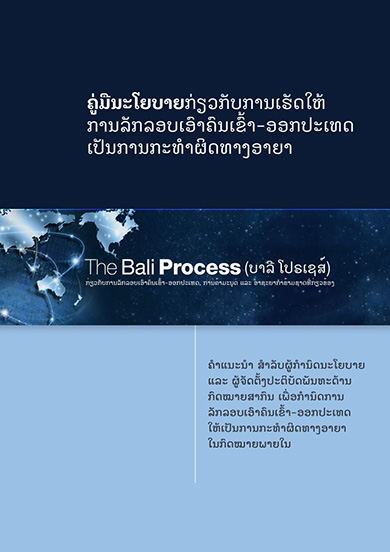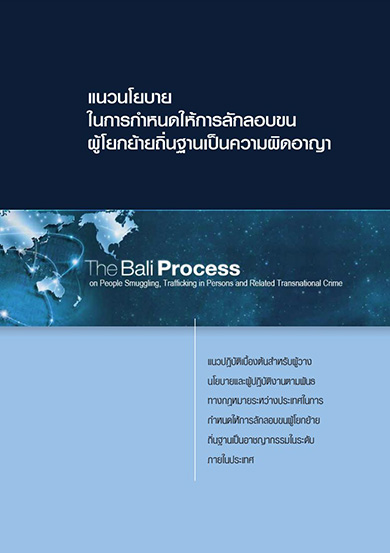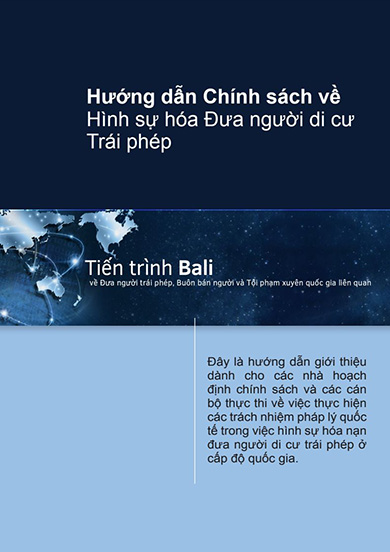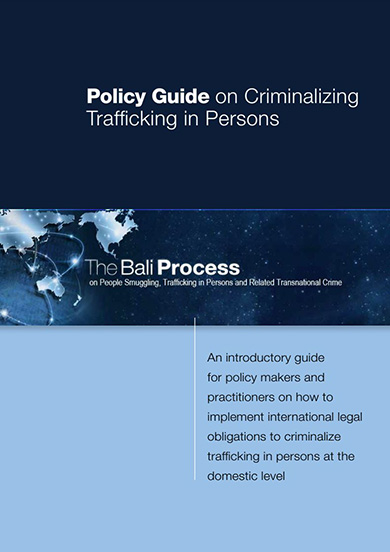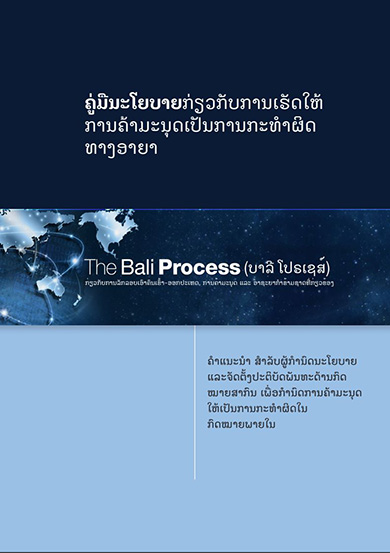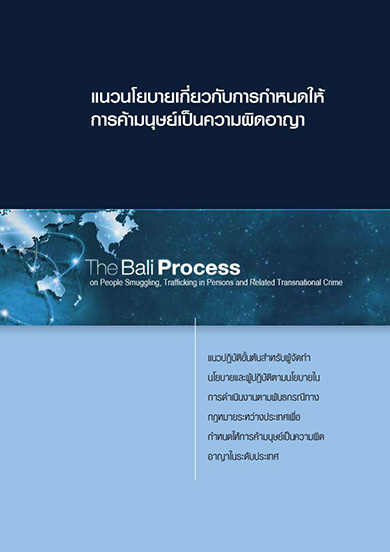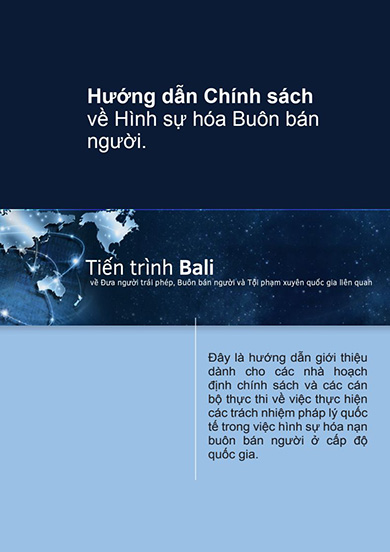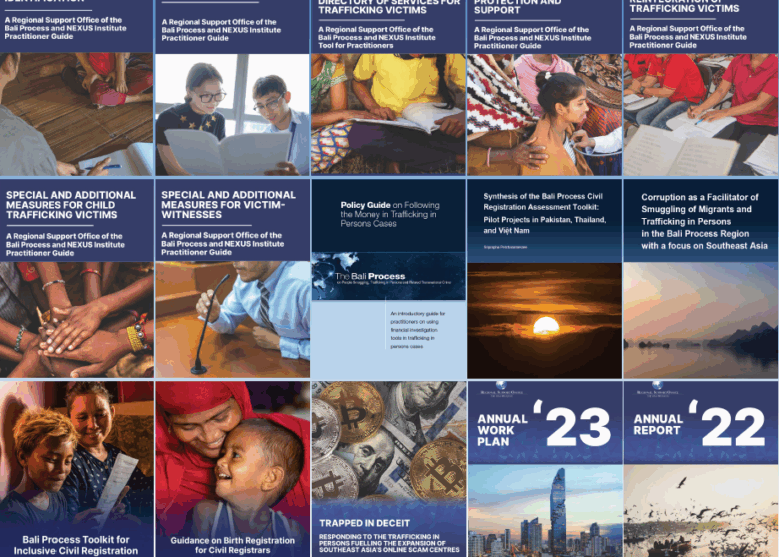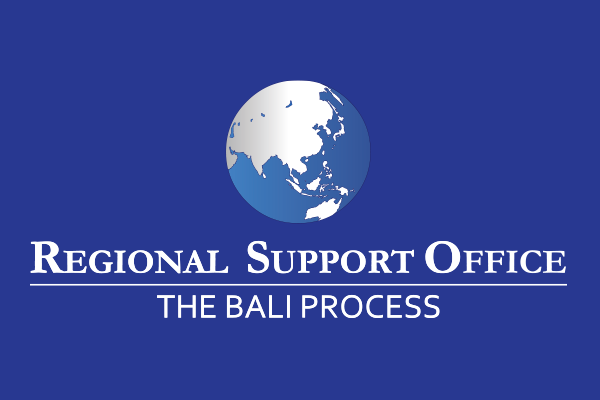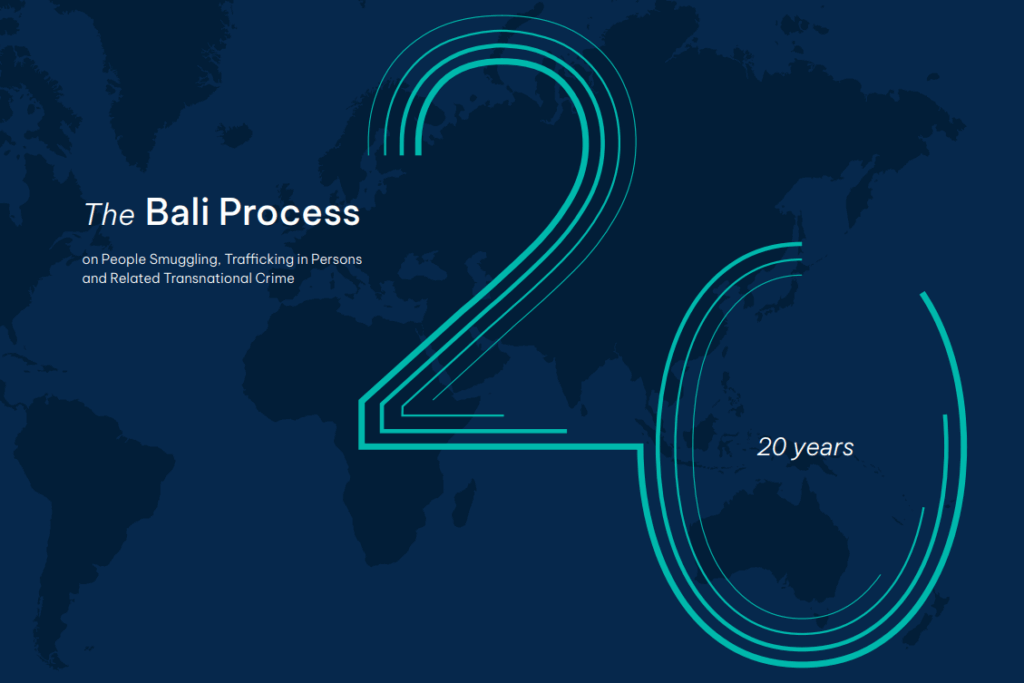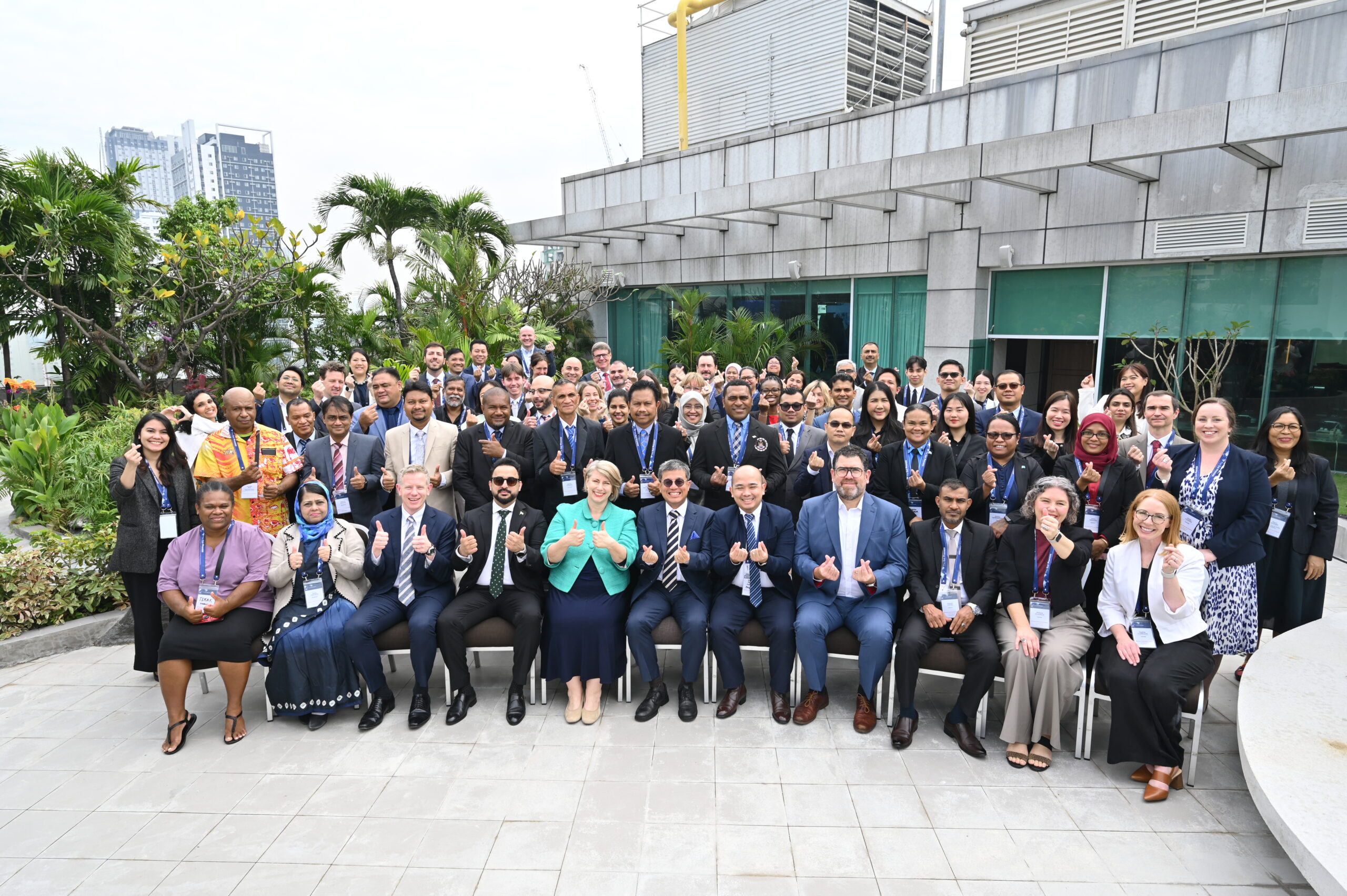
Co-chaired by Australia and Indonesia, the Working Group on Trafficking in Persons reports annually to the Bali Process Ad Hoc Group. It provides a platform for experts from the sixteen member states and three international organizations of the Ad Hoc Group to collaborate on trafficking-related issues. The Working Group enables Bali Process members to exchange information, share best practices, monitor emerging trends, and explore opportunities for international cooperation and capacity building in combating trafficking in persons.
The Working Group was established following the Fifth Bali Process Ministerial Conference on 2 April 2013, with its terms of reference endorsed at the Eighth Bali Process Ad Hoc Group Senior Officials Meeting in August 2014.In 2022, the Working Group identified five high-level objectives to guide its work:
- Enhancing information sharing on trafficking trends and related issues
- Building legal and policy capacity among Bali Process members
- Promoting cross-border cooperation
- Strengthening collaboration with other regional and multilateral organizations
- Increasing private sector and civil society engagement, including through the Bali Process Government and Business Forum
Forward Work Plan 2024-2026
Building on its established mandate, the Working Group continues to support Bali Process members in practical and coordinated action against trafficking in persons. Its efforts focus on enhancing regional collaboration, promoting information sharing, and fostering partnerships with multilateral organizations and civil society. These activities are aligned with the 2023 Adelaide Strategy for Cooperation and the Group’s Terms of Reference. The 2024–2026 work plan prioritizes:
- Enhancing information sharing on trafficking trends and related issues
- Supporting the development and implementation of robust legal and policy frameworks
- Fostering practical cross-border cooperation
- Strengthening collaboration with multilateral and regional organizations
- Expanding engagement with the private sector and civil society, including through the Bali Process Government and Business Forum
Through these coordinated efforts, the Working Group remains committed to strengthening regional cooperation, addressing emerging challenges, and advancing effective solutions to combat trafficking in persons across the Bali Process region.
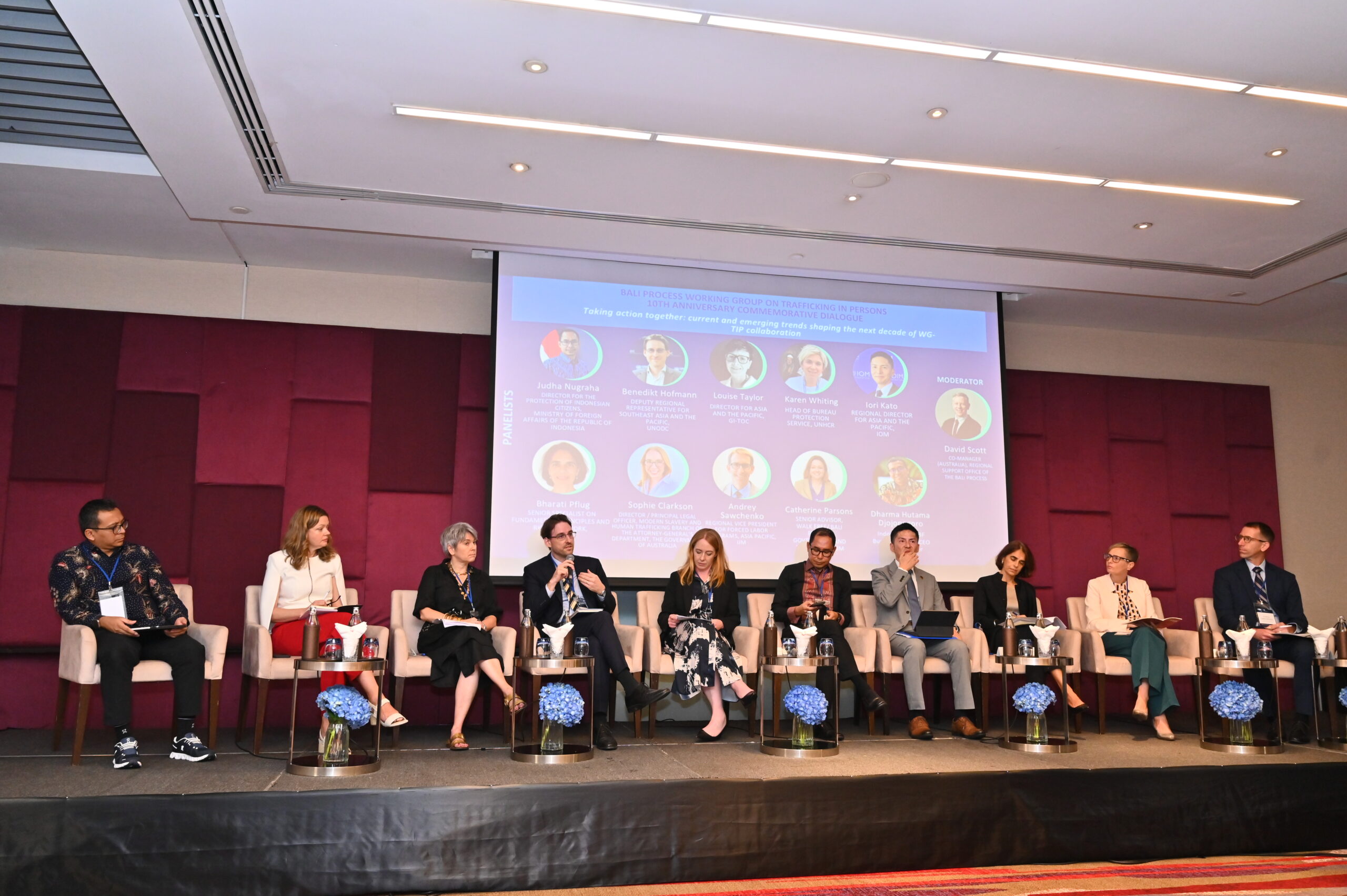
Policy Guides
Policy Guide on Following the Money in Trafficking in Persons Cases
This policy guide is available to all Bali Process countries, including those that have not signed or ratified the United Nations Convention against Transnational Organized Crime and its two supplementary protocols. While not legally binding, the guide is designed as a practical tool to support law and justice officials in their efforts to investigate and prosecute trafficking in persons cases. The full guide, along with translations in multiple languages, is available below for use by practitioners and policymakers alike.
Arabic · Bengali · Burmese · Dari · Dhivehi · English · Hindi · Khmer · Lao ·Mandarin · Malay · Sinhalese · Tagalog · Tamil · Thai · Vietnamese
Policy Guides on Identifying and Protecting Victims of Trafficking
These guides provide a clear overview of international and regional standards for identifying and protecting victims of trafficking. Drawing on good practices from Bali Process member countries, they are designed as practical tools to support governments, law enforcement, and frontline responders.
Policy Guide on Identifying Victims of Trafficking
Available in: English, Arabic, Bengali, Burmese, Dari, Dhivehi, Hindi, Khmer, Malay, Mandarin, Sinhalese, Tagalog, Tamil, Thai, Vietnamese
Policy Guide on Protecting Victims of Trafficking
Available in: English, Arabic, Bengali, Burmese, Dari, Dhivehi, Hindi, Khmer, Malay, Mandarin, Sinhalese, Tagalog, Tamil, Thai, Vietnamese

Working Group Resources
Additional Resources
Working Group on Trafficking in Persons Past Events
All

